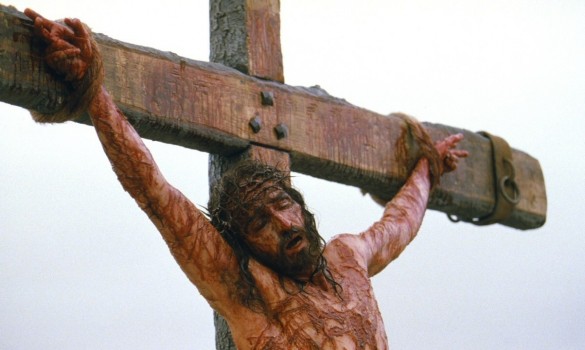With the first trailer for Darren Aronofsky’s Noah finally appearing (you can savour its apocalyptic delights here) and Ridley Scott’s follow up to The Counsellor, Exodus, providing more than a subtle shift in tone and theme, are the Biblical epics of Hollywood’s Golden Age making a comeback?
Films such as Ben Hur, The Robe, The Ten Commandments, The Greatest Story Ever Told, Quo Vadis, David & Bathsheba and Samson & Delilah all drew on Biblical themes and then plastered them across epic canvasses, with thousands of extras, colossal set pieces, huge stars and ground-breaking special effects. Although there was a certain amount of overlap, these Biblical epics stood distinct from the “sword and sandals” era of Spartacus, The Rise and Fall of the Roman Empire and their like, a sub-genre into which Ridley Scott breathed fresh life with Gladiator.
The question is, with plenty of historical content to choose from, why is Hollywood dipping back into the Bible? Recently, US television’s History Channel broadcast a high profile, big budget series called, quite appropriately, The Bible, with ten episodes covering the best-known and most significant sections of biblical history. It was a huge ratings success and received nominations for Primetime Emmys in a number of technical categories and although the US might be perceived as being rather more interested in biblical Christianity than we are on this side of the Atlantic, Channel 5 has picked up the UK broadcast rights and will be showing the series soon. Adopting a more cynical standpoint, Hollywood is likely to go with whatever sells, so it seems unlikely that this recent trend is part of any ideological shift or spiritual awakening, but is rather a reflection of both a perceived appetite amongst audiences but perhaps also a richness of thematic content that can be tapped into.


As arresting as many of the visuals from the trailer are, it is another example of a very serious film, with every line seeming to be delivered with portent and gravity and in these increasingly cynical times, such a po-faced approach does not tend to go over very well. The grandiose, bombastic score and earnest speechifying from The Ten Commandments worked a treat in the 1950’s but feels pretty dated to us now, prefering as we do a bit of humour, or at least a bit of tongue in cheek to puncture the pomposity.
A film about the annihilation of almost all of mankind is unlikely to be played for laughs (this is not Evan Almighty, after all), but the themes do rather leave Aronofsky painted into a corner, tonally speaking. That “tonal corner” may create a challenge for Noah, in terms of it attaining significant commercial success and although studios enjoy critical acclaim, that doesn’t pay the bills on this sort of big budget production.
So will this, Exodus and the UK television run of The Bible prove successful? Will they open the floodgates (sorry) for more of the same? The Passion of the Christ and The Lion The Witch and The Wardrobe both drew in very large audiences, including hordes of Christians, but will the approaches taken by Aronofsky and Ridley Scott to Noah and Moses respectively draw those same Christian audiences in, or push them away? As dramatic as the Biblical story of Noah and the flood is, it has relatively little detail and so the idea of a barbarian horde storming the ark, or a flaming sword being plunged into the earth, or meteors streaking through the sky may feel like unnecessary artistic embellishments that put off the intended core audience. Those same embellishments may however draw in a crossover audience, unconcerned by Biblical fidelity and hoping instead for some disaster-porn along the lines of 2012, Armageddon and The Day After Tomorrow.
Ultimately, Aronofsky and Scott are serious film-makers, clearly making serious films addressing big themes, but they are operating within a Hollywood machine geared towards profit, with artistic credibility sitting somewhat further down the list. If these films succeed, we are likely see more of their ilk; that is how La-La Land works. Once they stop succeeding, they will stop being green-lit. In the meantime, it remains to be seen whether we get to see some genuinely great films (and television), regardless of where you stand on the source material.








